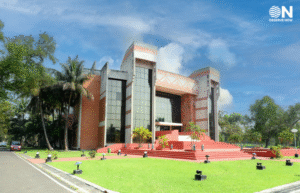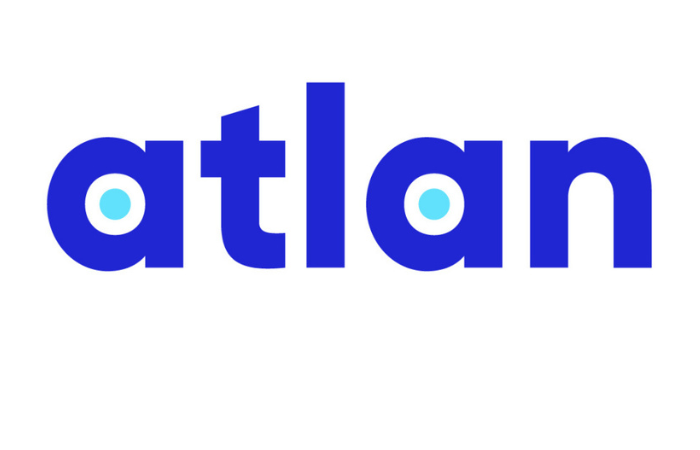The development of infrastructure projects and public welfare schemes, and other ongoing projects are making Uttar Pradesh a breakthrough for the development of new India. The state aims to have 21 airports soon and has seen increased power generation capacity, solar energy projects, and tourism. The government also focuses on improving law and order and creating a secure environment for the common people.
From empowering communities through skill development programs to fostering collaboration between government and private entities, the conversation highlights key priorities, upcoming projects, and strategies aimed at enhancing the quality of life and boosting employment in urban areas.
Read more: Tech Turmoil & Regulatory Hurdles — Is it going to impact India’s Banking Sector in long run?
Shivani Babbar, ObserveNow in an exclusive interview with Amrit Abhijat IAS, Principal Secretary of Urban Development, Government of Uttar Pradesh, provides insights into the transformative initiatives driving urban employment and shaping the future of urban living in the region.
Here is an edited excerpt:
Could you highlight some of the key initiatives taken to boost urban employment under your leadership?
Several initiatives have been implemented to boost urban employment through Urban Development Projects under various missions-
1. Initiatives under Smart Cities Mission:
· Skill Development Program- to support micro skill development for providing targeted skill development trainings to Self-Help Groups (SHGs) and establishing Micro Skill Centers. This initiative aims to boost employment opportunities and nurture a culture of entrepreneurship within urban communities by imparting practical skills to individuals.
· Mission Rojgar- to enhance both the quality and quantity of employment outcomes through various initiatives. These include fostering an environment conducive to enterprise growth, sustainability, and create job opportunities. Moreover, strategies are being implemented to align training programs with future market demands, nurturing a skilled workforce that meets industry requirements. Collectively, these endeavours aim to not only increase employment opportunities but also ensure their sustainability and relevance in the evolving job market.
· Career Mitra- Career Mitra is an all-encompassing job portal designed to serve artisans and Unskilled industrial workers by linking them to employment prospects across different sectors. Acting as a digital hub for skilled workers in demand by employers seeking their expertise, the platform aids in locating job opportunities close to their homes, tailored to their skillsets and areas of expertise. It offers a user-friendly interface accessible to both job seekers and providers, streamlining the employment process for all parties involved.
2. Shakti Rasoi and SHGs under NULM: Implemented under the National Urban Livelihoods Mission (NULM), is designed to empower women and promote self-reliance through culinary entrepreneurship and SHG support networks. This initiative not only provides opportunities for economic empowerment but also fosters social cohesion and community resilience.
3. SVANidhi- providing financial assistance and support to street vendors, enabling them to sustain their livelihoods and improve their socio-economic status.
4. Fellowship Aspirational Cities Program- a unique opportunity for the youth to engage with government initiatives and contribute to policy, management, and implementation processes. Through this program, aspiring leaders are equipped with the skills and knowledge necessary to drive positive change in their communities, fostering a culture of civic engagement and leadership.
5. Outsourcing of employee in the Corporations- outsourcing of employees in municipal corporations is being explored as a strategy to enhance operational efficiency and service delivery. By leveraging external expertise and resources, municipal corporations can streamline processes and improve the quality of public services, ultimately benefiting urban residents and businesses alike.
How is the urban employment landscape evolving, and what strategies are being implemented to ensure job creation and economic growth in urban areas?
The urban employment landscape is continually evolving, influenced by technological advancements, demographic shifts, and economic trends. Over the last 5 years, formation of 119 ULBs have facilitated development and widened the scope of employment in the State.
To effectively respond to the dynamic nature of urban employment various strategies are being implemented to ensure job creation and foster economic growth in urban areas.
1. Cities are increasingly focusing on promoting innovation and embracing technology to drive economic growth and create new job opportunities.
2. Recognizing the importance of a skilled workforce, governments and organizations are investing in education and skills development programs. These initiatives aim to equip individuals with the necessary skills and competencies to thrive in the modern job market.
3. The State is providing various forms of support to aspiring entrepreneurs, including access to financing, mentorship programs, and streamlined regulatory processes to facilitate business creation and expansion.
4. Infrastructure projects not only creates jobs during construction but also stimulates economic activity and attracts businesses to urban areas, leading to long-term employment opportunities.
5. Promoting certification-based Internship and Volunteer program and stipend-based fellowship program in Urban Local Bodies.
6. Promoting the aspiring female culinary artist by providing a platform in various local bodies.
Overall, a combination of these strategies, along with proactive policy-making and effective implementation, is essential for addressing the evolving urban employment landscape and fostering sustainable economic growth in urban areas.
How is the government fostering collaboration with the private sector in urban development projects, and what benefits are being realized through such partnerships?
In today’s scenario, the State is readily looking for collaboration with the private sector to play a bigger role in urban development. These partnerships leverage the strengths of both sectors to achieve better outcomes in city planning.
· EPC (Engineering, Procurement, and Construction): Under the EPC model, private firms are contracted to design, build, and deliver infrastructure projects. This allows for efficient project execution while ensuring quality and adherence to timelines.
· CSR (Corporate Social Responsibility): Private companies contribute to the Urban Development projects as part of their CSR initiatives. By investing in social and infrastructure projects, they contribute to the betterment of urban communities and enhance their own brand image.
· PPP involve joint investment and management of urban infrastructure projects by both the government and private entities. This model allows for risk sharing, innovation, and efficiency in project delivery.
· Stakeholder Consultation- Prior to the implementation of new scheme or innovation, the department actively seeks comments and feedback from relevant stakeholders. This inclusive approach fosters a collaborative environment, ensuring that the final outcomes are aligned with the needs and expectations of all involved parties. A notable example is seen in the Aspirational Cities Program, where the department has onboarded 10 knowledge partners through consultation. This collaborative effort not only enhances project effectiveness but also promotes transparency and accountability in urban development endeavours.
· Revenue Sharing: In revenue-sharing models, private companies invest in urban development projects in exchange for a share of the revenue generated from the project. This incentivizes private investment while ensuring the sustainability of urban infrastructure.
Through these collaborative efforts, governments can access additional resources, expertise, and innovation from the private sector, leading to improved infrastructure, services, and overall quality of life in urban areas. Moreover, such partnerships contribute to economic growth, job creation, and sustainable development, benefiting both public and private stakeholders and fostering inclusive Urban development.
Can you highlight key priorities and upcoming projects that will shape the future of urban living and employment opportunities in the area?
Following are the key priorities and upcoming projects that will shape the future of urban living and employment opportunities:
The department not only focuses on the development of the city but also for its people from all walks of life-
· Senior Care Centers: offers a space for the elderly to rejuvenate, particularly those who do not reside with their families. These centers will offer a comprehensive range of amenities to address concerns related to security, loneliness, health, and social well-being.
· Study Centres / Digital Libraries: Establishing educational facilities for lifelong learning and skill development.
· Smart Classes: Implementing technology-enabled learning environments for education and skill enhancement.
· Working Women Hostels: Providing safe and affordable accommodation for working women.
· Vet Clinics: Offering veterinary services for pet care and animal welfare.
The state is now diligently working on infrastructure projects geared towards the masses. Public/Urban plazas, town halls, Kalyan Mandapans, and Heritage Street projects are being are being taken up by the department to create a vibrant and inclusive spaces that foster community engagement and overall well-being of its citizens.
· Kalyan Mandapams: Creating spaces for community gatherings, events, and celebrations.
· Urban Plazas: Designing public spaces for recreation, leisure, and cultural activities which includes market areas, food hub and multiactivity for kids.
· Town Hall: Constructing administrative buildings for governance and civic engagement.
· Heritage Streets: Preserving and showcasing historical and cultural heritage through streetscaping and beautification.
· Co-working Spaces: Providing infrastructure for entrepreneurs and professionals a Space to work remotely with smooth internet facility.
· Public Parks: Creating green spaces for relaxation, recreation, and environmental sustainability.
· Vending Zones / Kiosks: Setting up spaces for small-scale retail and entrepreneurial activities.
· Community Centers: Establishing hubs for community engagement, social services, and cultural activities.
· Urban Fairs: Organizing events to promote local artisans, entrepreneurs, and cultural diversity.
· Kumbh / Magh Mela: Hosting religious and cultural festivals to boost tourism and economic activity.
· City Beautification / Branding: Enhancing the aesthetics and identity of the city to attract visitors and investors.
· Health ATM: Providing accessible healthcare services through automated kiosks.
· Public Bike Sharing: Implementing bike-sharing systems to promote sustainable transportation and reduce congestion.
Employment Generation Initiatives:
CM Fellow: Engaging youth in governance and policy implementation through fellowship programs.
TULIP (The Urban Learning Internship Program): Providing internship opportunities for students in urban development projects.
Other indirect employment generation initiatives through the implementation of the above projects, include job creation in construction, maintenance, hospitality, retail, healthcare, education, and other sectors.
These priority projects and employment generation initiatives aim to enhance urban living standards, promote economic growth, and create diverse employment opportunities for residents in the area.




























